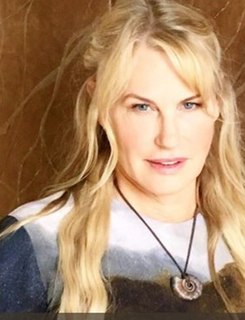A Quote by Peter Thiel
We need more pessimism that the future might be a lot worse, and we need more optimism that the future might be better.
Related Quotes
We don't need no more rappers, we don't need no more basketball players, no more football players. We need more thinkers. We need more scientists. We need more managers. We need more mathematicians. We need more teachers. We need more people who care; you know what I'm saying? We need more women, mothers, fathers, we need more of that, we don't need any more entertainers
Jesus offered a single incentive to follow himto summarize his selling point: 'Follow me, and you might be happy-or you might not. Follow me, and you might be empowered-or you might not. Follow me, and you might have more friends-or you might not. Follow me, and you might have the answers-or you might not. Follow me, and you might be better off-or you might not. If you follow me, you may be worse off in every way you use to measure life. Follow me nevertheless. Because I have an offer that is worth giving up everything you have: you will learn to love well.'
We do not need more material development, we need more spiritual development. We do not need more intellectual power, we need more moral power. We do not need more knowledge, we need more character. We do not need more government, we need more culture. We do not need more law, we need more religion. We do not need more of the things that are seen, we need more of the things that are unseen. It is on that side of life that it is desirable to put the emphasis at the present time. If that side be strengthened, the other side will take care of itself.
We need to find ways to transform the more than 60 million service jobs, which make up 45 percent of U.S. employment, in the same way - rewarding workers financially, encouraging and empowering creative participation, creating professional communities, and so on. We can look to any number of new companies - from Zappos, to Starbucks, to American Apparel - for examples of how this idea might play itself out. We need to do more to make service jobs into higher-paying family-supporting jobs of the future.
...There's a lot more to be gained from being grateful than you might think. Managing your outlook towards appreciation and thankfulness feeds the soul. It brings calm and contentment. It lifts your levels of happiness and hope. Gratitude will amplify your positive recollections about times past, and in turn sets the stage for optimism about the future.
No one "discovers" the future. The future is not a discovery. The future is not a destiny. The future is a decision, an intervention. Do nothing and we drift fatalistically into a future not driven by technology alone, but by other people's need, greed, and creed. The future is not some dim and distant region out there in time. The future is a reality that is coming to pass with each passing day, with each passing decision.



































